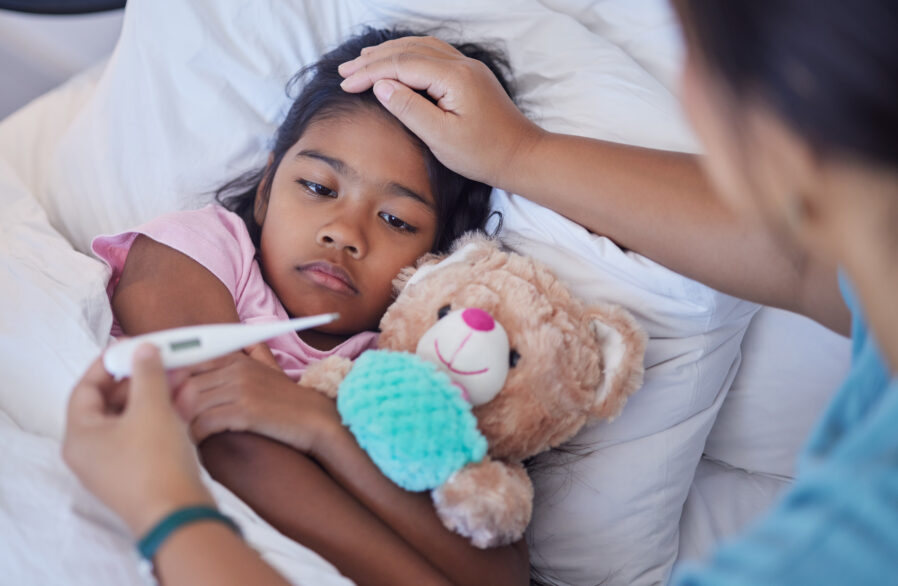It’s natural for parents to worry when the thermometer reads over 100 degrees.
However, before you grab the ibuprofen or rush to urgent care, Jaime Friedman, MD, a pediatrician at Rady Children’s, wants you to keep some information in mind. “The most important thing parents should know about a fever is that, for the vast majority of children over 3 months old, fevers are not harmful,” Dr. Friedman says. “Fevers are a symptom, not a disease. They are part of the body’s immune system to help fight infection.” A fever is defined as a temperature of 100.4 degrees Fahrenheit or higher. However, some children may feel unwell when their temperature is above 99 degrees. What exactly causes a fever? It could be any of a number of things, ranging from an autoimmune disease to cancer to a viral infection. A typical cold can cause a fever for three to five days. When a child does have a fever, parents should note other symptoms the child may be experiencing.
“If they are alert, breathing comfortably and well hydrated, please call your pediatrician,” Dr. Friedman says. “If they have a fever with a bad cough, sore throat or ear pain and it is after hours, urgent care is an option. For any child having trouble breathing, severe headache with a stiff neck, persistent vomiting or signs of dehydration, they should be seen in the nearest emergency room.”
Medications, such as acetaminophen or ibuprofen, are also an option. Acetaminophen can be given every four to six hours, but should be used with caution if the child has any issues with their liver. Ibuprofen can be given to children 6 months and older if they are well-hydrated and eating a little food. It can be given every six to eight hours, but should be used with caution in children who have issues with their kidneys. Parents should also dress their child lightly, offer plenty of fluids and allow them to rest.
Dr. Friedman also cautions to never put a child with a fever in a cool bath. It could be dangerous, she says. “Managing fevers requires time and patience,” Dr. Friedman says. “Any fever treatment you provide will not make your child’s illness go away any faster.” For any concerns or questions, parents should talk to their pediatrician for guidance.
